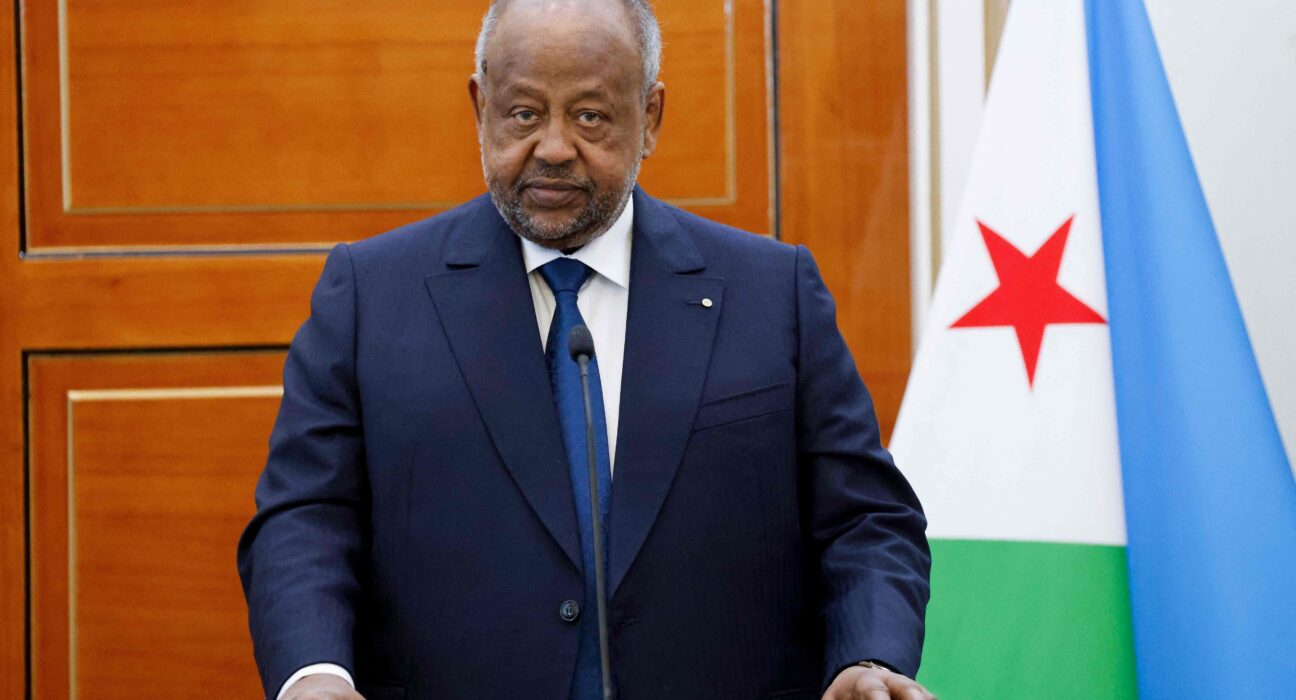Djibouti’s President Declares Bid for Sixth Term After Parliament Removes Age Limit

Djibouti’s long-serving leader, President Ismail Omar Guelleh, has announced his intention to seek a sixth term in office, shortly after the country’s parliament voted to abolish the presidential age limit, effectively clearing the way for his continued rule.
The amendment, passed overwhelmingly by the National Assembly on October 26, 2025, removed the 75-year age ceiling that would have disqualified the 77-year-old Guelleh from contesting in the 2026 presidential election.
Lawmakers said the decision was aimed at “ensuring leadership continuity and national stability,” a stance critics view as a calculated move to extend the president’s decades-long hold on power.
Guelleh, who has ruled Djibouti since 1999, confirmed his intention to run again during a broadcast in Djibouti City, declaring that he remained committed to steering the country toward “peace, development, and prosperity.”
He described the constitutional change as a “reflection of the people’s will,” insisting that Djibouti’s stability and progress under his leadership justify his continued tenure.
“I have heard the voices of our citizens who wish to preserve unity and progress,” Guelleh said. “With humility and commitment, I accept to continue serving my nation.”
The constitutional reform, which sailed through parliament with unanimous approval from 65 lawmakers, has sparked domestic and international criticism. Opposition figures and rights groups denounced the move as a further erosion of democratic principles in the small but strategically significant Horn of Africa nation.
Analysts argue that the removal of term and age limits has become a familiar tool of political consolidation across parts of Africa, allowing leaders to extend their rule indefinitely under the guise of “constitutional reform.”
“This amendment cements Guelleh’s legacy as one of Africa’s longest-serving presidents,” said one political analyst based in Addis Ababa. “While supporters call it stability, critics call it the entrenchment of authoritarianism.”
Djibouti’s strategic location at the entrance of the Red Sea — a critical shipping route connecting the Suez Canal to the Indian Ocean — has made it a geopolitical hub hosting multiple foreign military bases, including those of the United States, China, France, and Japan.
Supporters of Guelleh argue that his leadership has ensured stability and attracted foreign investment, particularly in port infrastructure and logistics.
They claim continuity in leadership is essential amid ongoing instability in neighboring Somalia, Ethiopia, and Eritrea.
However, opposition groups maintain that the president’s long rule has come at the expense of political freedom. They accuse his administration of suppressing dissent, manipulating elections, and limiting media independence.
In the 2021 election, Guelleh secured over 97% of the vote, following an opposition boycott — a result widely criticised by international observers.
International responses to the age-limit removal have been cautious. While major powers with military and economic interests in Djibouti have not issued strong condemnations, several human rights organisations have called on the government to guarantee free, fair, and transparent elections in 2026.
As the ruling Union for the Presidential Majority (UMP) prepares to formally nominate Guelleh as its flagbearer, opposition parties face significant hurdles — including restrictive laws and limited access to media.
If successful in 2026, President Guelleh would extend his rule beyond three decades, reinforcing his status as one of Africa’s longest-serving leaders, alongside figures such as Cameroon’s Paul Biya and Congo’s Denis Sassou Nguesso.
For many Djiboutians, the 2026 election will serve as a test not only of Guelleh’s enduring grip on power but also of the country’s democratic resilience in an increasingly authoritarian regional landscape.









